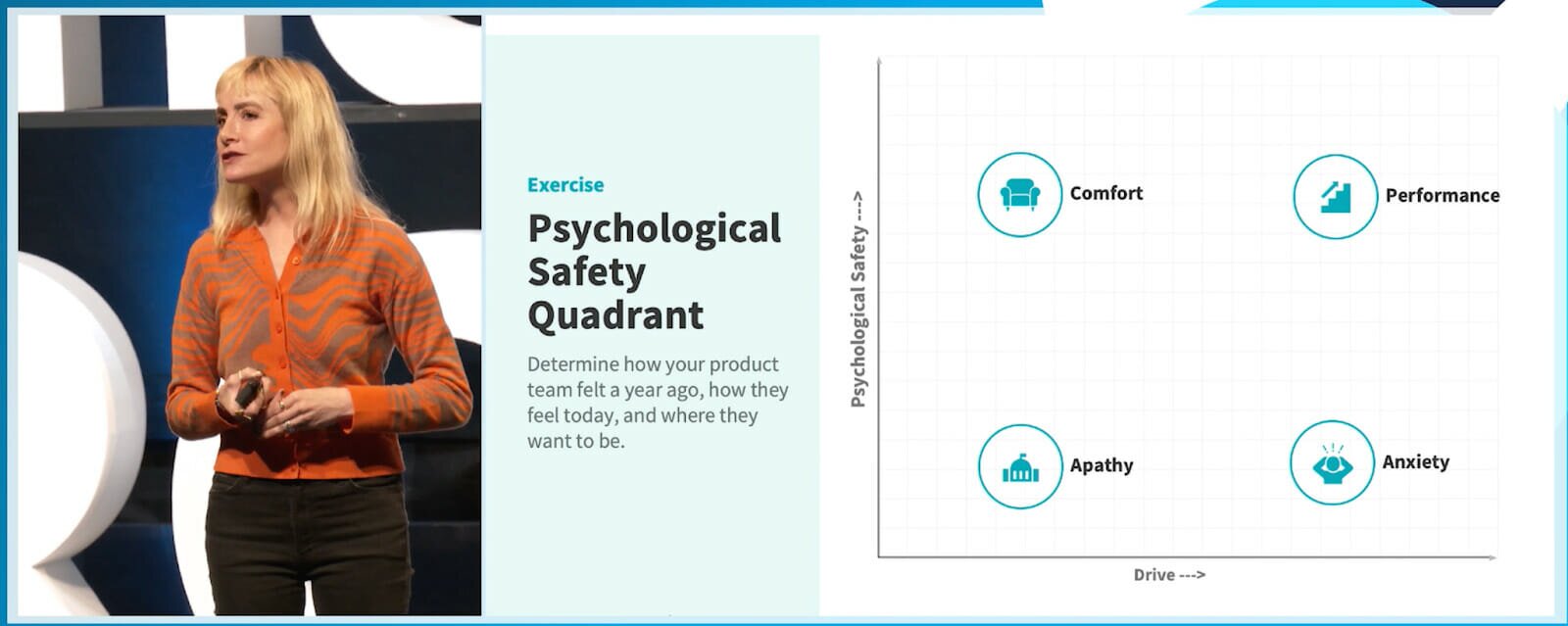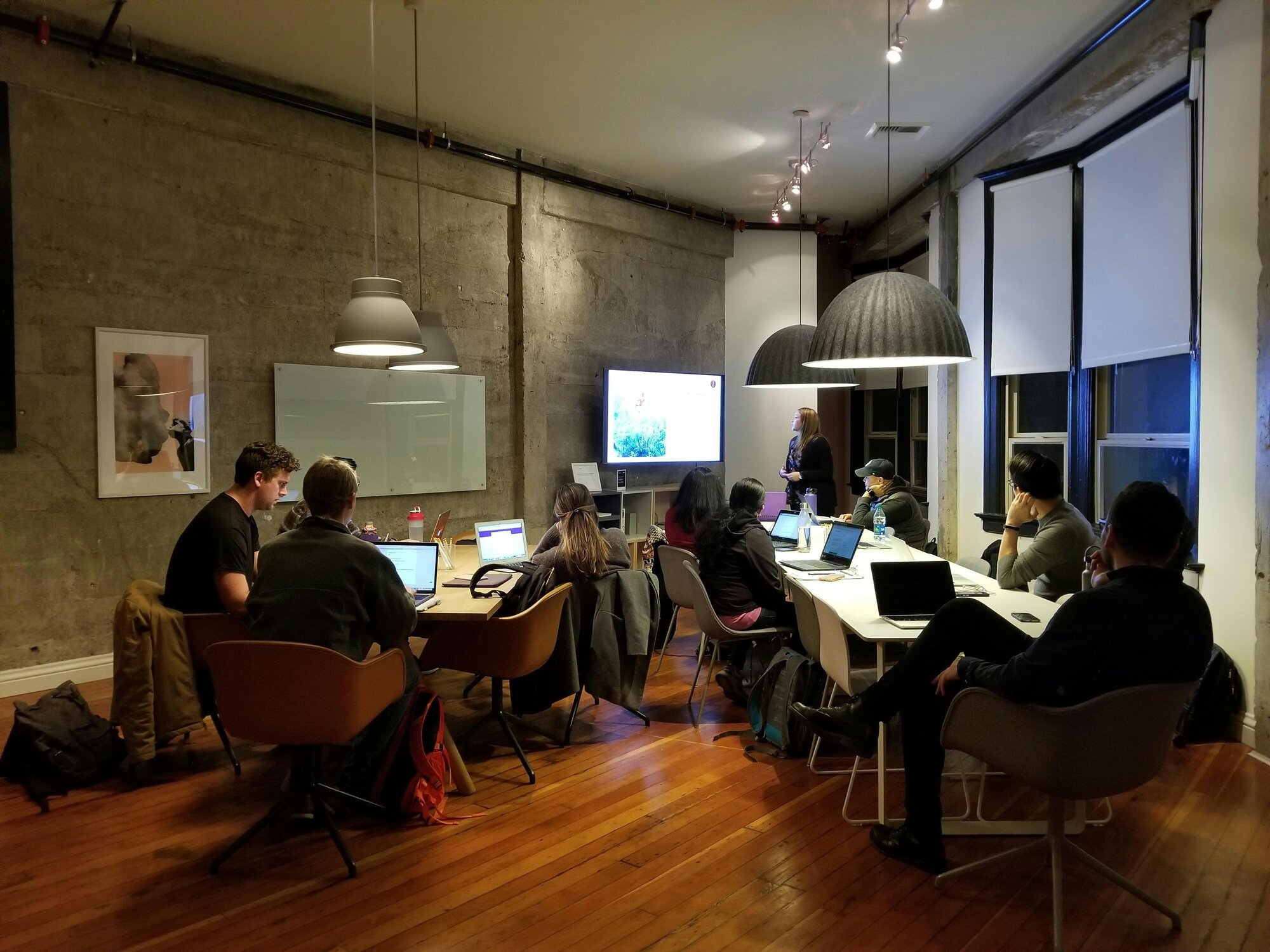In this #mtpcon San Francisco keynote, Diana Stepner, Head of Product, Education at Chan Zuckerberg Initiative, shared insights on the importance of psychological safety for remote teams. Watch the video in full, or read on for a recap of her key takeaways.
The importance of psychological safety
Diana opened her keynote by explaining that creating an environment where teams can thrive, learn, and grow is important for businesses and individuals during difficult times.
Why should psychological safety be considered as s priority for teams? Diana explained how it could result in individuals thriving, where people feel safe and empowered. Consequently, thriving employees give an organisation a competitive advantage in today’s dynamic environment. Business leaders must recognise this potential and embrace a culture that empowers product teams.
Product and imposter syndrome
As product people, we’re often building something new. Diana explained that we love building things and don’t know where they will end up. However, sometimes the craft makes us question who we are. “It takes courage to go out and explore new avenues to create good products,” she said, “if you try it, then it ends up being worth the effort.”
Around 82% of people have experienced imposter syndrome, said Diana. It isn’t something you outgrow; it is part of who you are. “Embrace fear, uncertainty, and doubt,” said Diana, “You are not alone; many people face it just like you. It can make you better in your roles.” Those who embrace imposter syndrome can have new ideas and unlock new perspectives by feeling unique and humble.
Be honest that you want to learn and seek new ideas from others. It can help you grow and succeed by embracing this feeling.
Product is constantly changing, Diana said. There is an opportunity for organisations to embrace this change and onboard new voices, new opinions, and new thoughts to get a better return on investment.
Creating an environment where people feel safe
You want people to feel like they can be themselves at work, but how do you instil that culture? Diana shared how successful teams make and share mistakes. “As product people, we make mistakes. By sharing insight into mistakes, all teams can learn and grow,” she said. Teams that don’t do this go through the same mistakes again and again.
As the world around us continues to evolve, so do customers’ interactions and expectations of the product, Diana said. To continue to meet and exceed customer expectations, product managers must feel comfortable evolving their thinking and approaches. “Even though it may feel like a time to work quietly and get on with things, it’s still the time to embrace that uncertainty that we’re all facing”, she explained.
Use the Psychological safety quadrant to figure out with your team how safe they feel today, a year ago, and where they want to be across comfort, performance, apathy, and anxiety. You can then take action to help the team move forward.
Putting these thoughts into practice, Diana said first to have a role and responsibility clarity. Additionally, embrace learning, especially in a product role. Finally, don’t criticise mistakes. Reward and thank people for taking a risk and gaining learning. “It’s harder to thank people in a remote space, but we all have multiple Slack channels where we can make that recognition happen,”
Finally, don’t forget yourself, Diana said. Create a space where you can shine as well. “You don’t have to be everything to everyone. You can celebrate your small successes by yourself,”
Putting it all together, you want people to feel like they’re contributing to the team. Use retrospectives to identify improvements, Diana said. Just like you would use a retro at the end of a sprint, use the same function with your team. Use this to identify what you could be doing differently, encourage growth, and create a safe space for everyone.
Want to turn the learning from this talk into action?
Our exciting #mtpcon San Francisco 2023 Keynote Kit brings you all of the insights from our San Francisco keynote talks plus additional helpful discussion points and thought starters so you can easily translate the insights into actions – perfect for making effective improvements to your role, team, and product. Plus, get an email notification when each talk is published! Sign up now.







